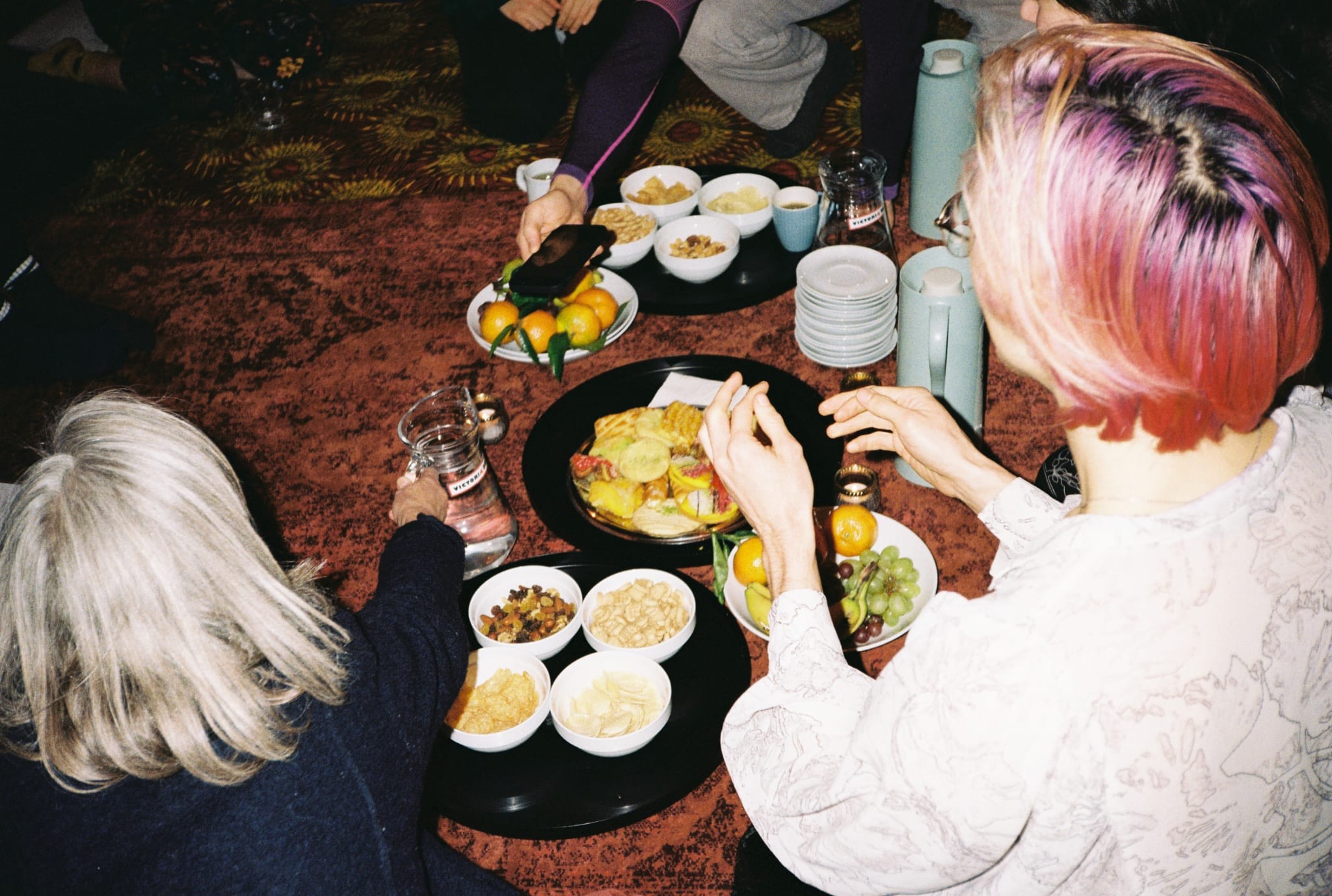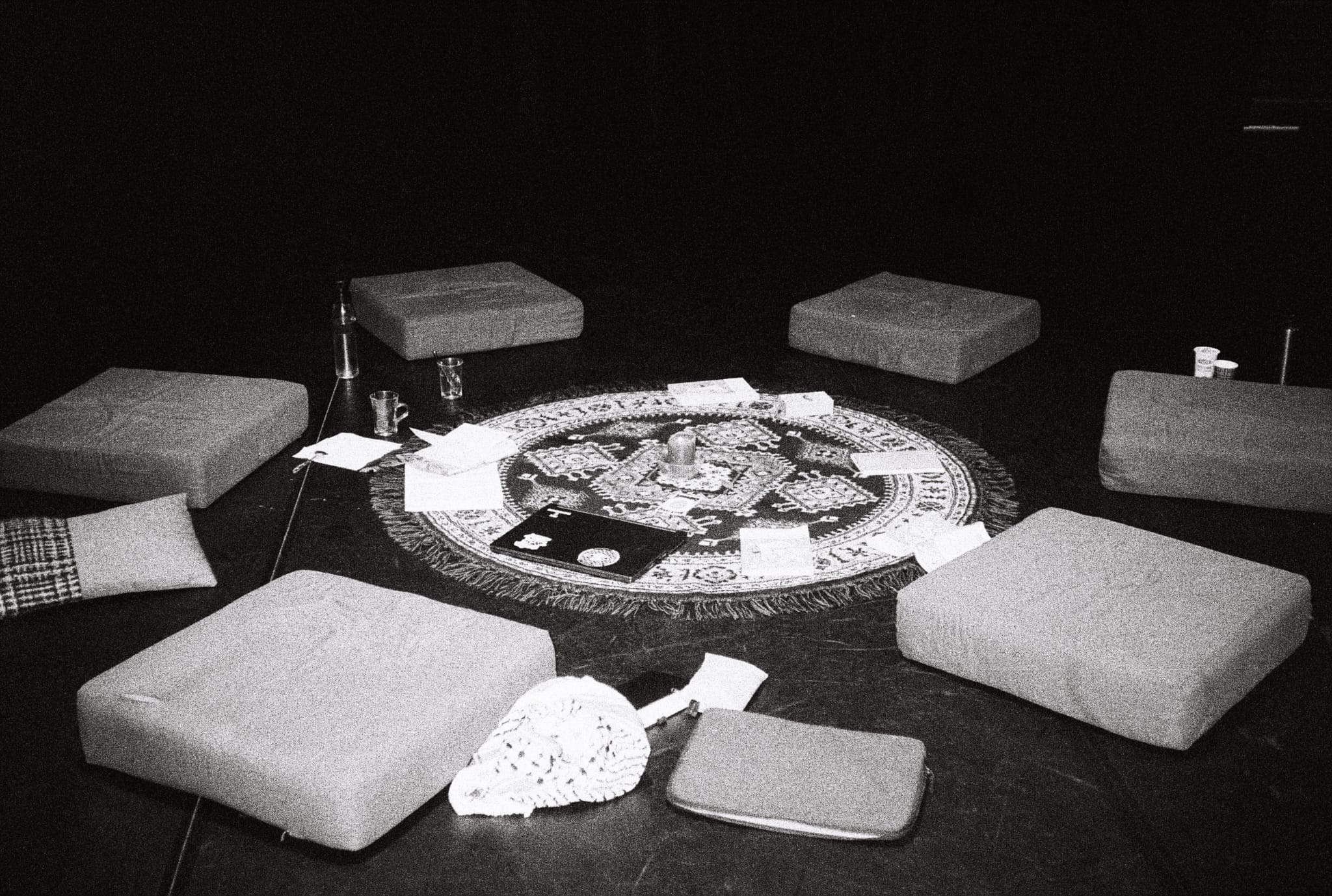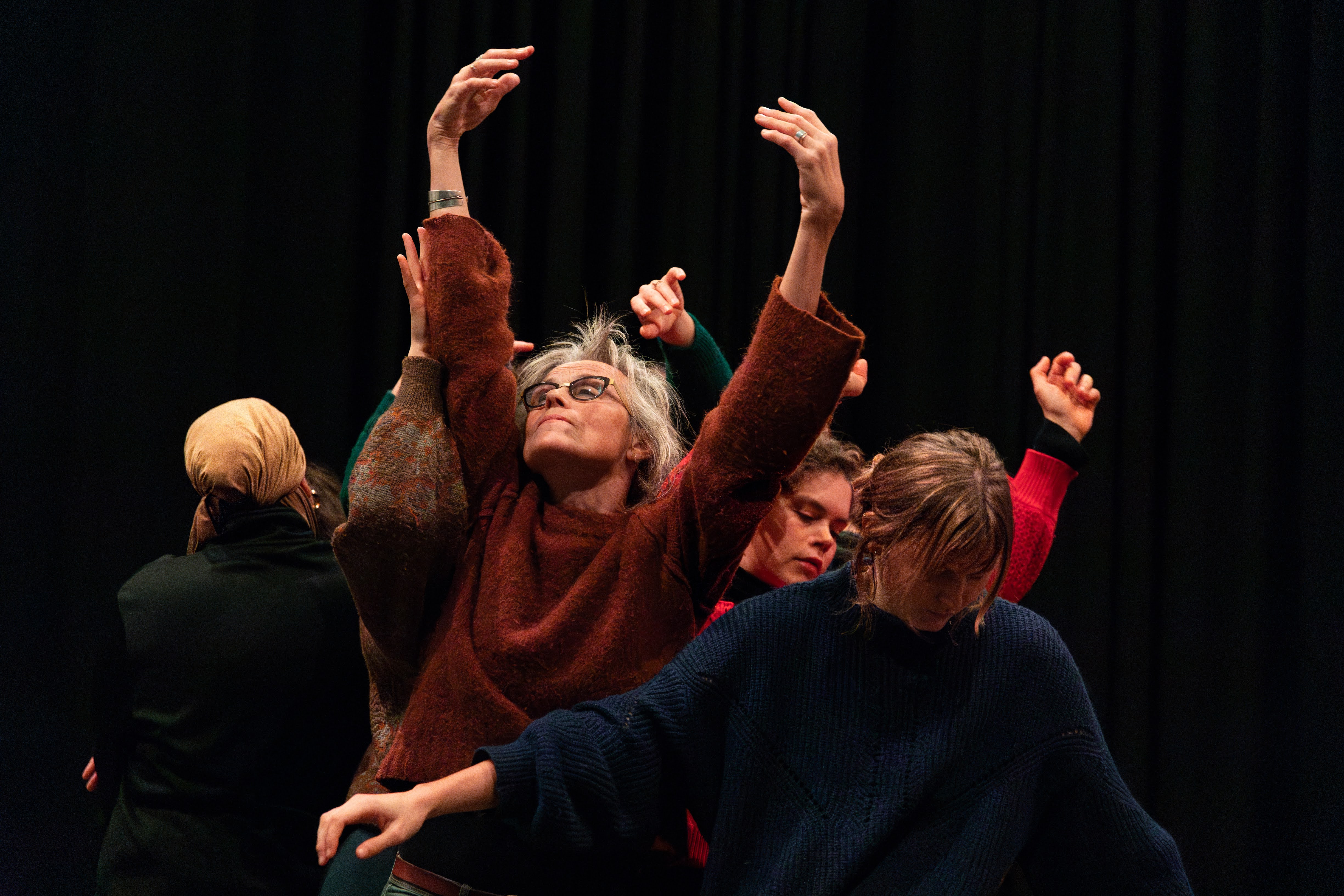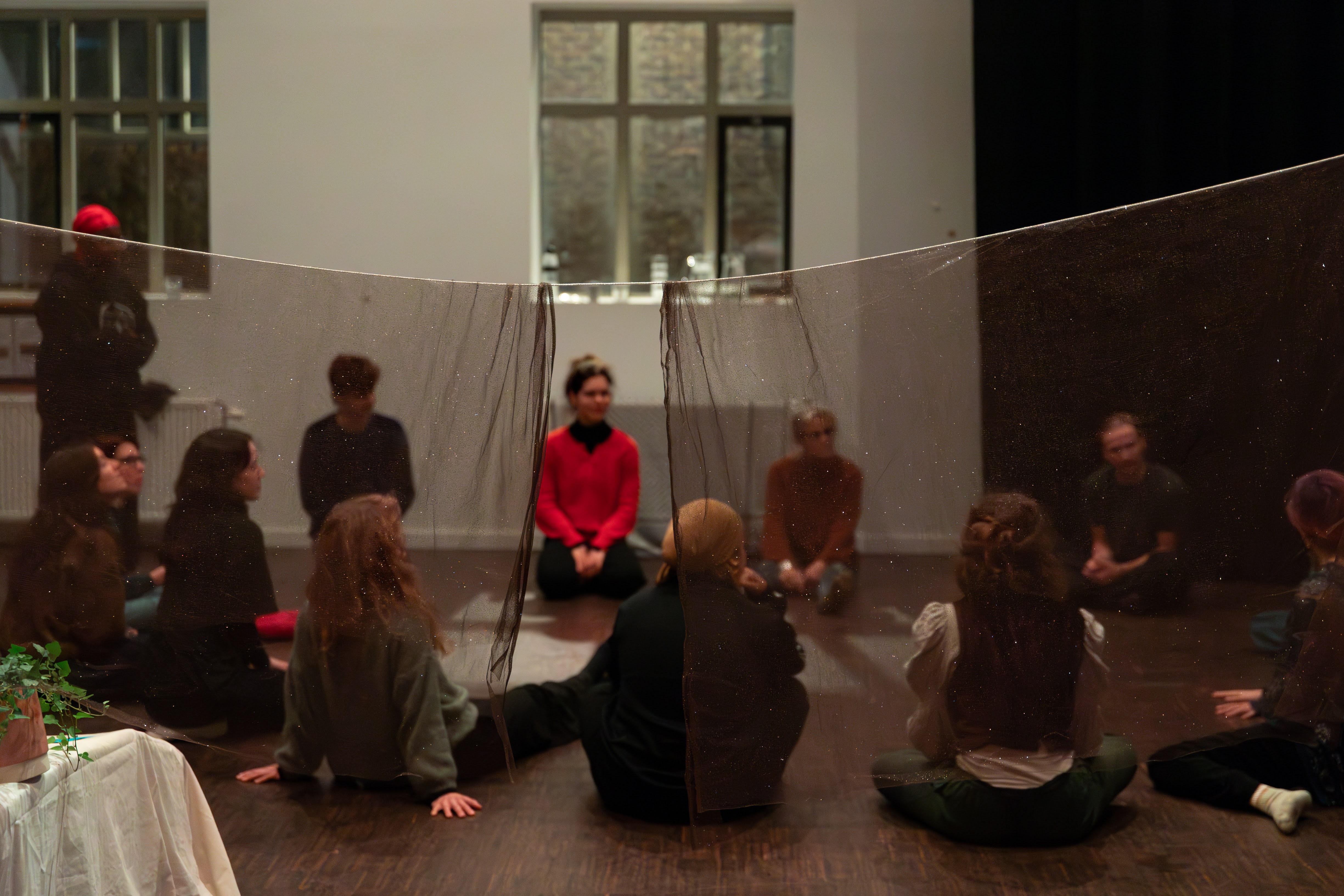Heritage

a transdisciplinary trajectory
Within 'Heritage' we create space and time to (re)discover the stories of our ancestors and cultures, both individually and collectively.
How do you connect with the stories/expectations of your ancestors? How do these stories find a place in your body, in your community?
How can we give inherited shared gestures, words, bodily pains, dishes and imaginations a place? And how
can we rediscover the lost stories, the stories that we have forgotten because, according to normative frameworks, they do not deserve a place in Western society?
The journey has no end goal. It is a multi-layered investigation that arises from our own feverish, dreamy and identity-questioning search for how to give the past a place in the present towards a softer future. In order to do this, we travel back to our places of origin, and talk to ancestors and other searching souls.
Every now and then this leads to a stopover where we reflect and exchange. This happens in the form of a performance, a gathering, a work in progress, an essay, ... Dialogue and research are always central. How can this new medium (or this collection of media) give us new insights and tools to better understand and honor our own histories. And above all, how can we share this with the outside world so that every heritage gets space to speak.
In 2023, each member of KIN C took the time to delve into their own heritage through artistic research. Kenneth, Lois and Sara received a development grant from the Flemish Government and travelled to their countries of origin; Thailand, Zambia and Vietnam respectively. Kenneth developed a writing language and performance style with which he could explore the intersection between his queerness and ties to Thailand both formally and in terms of content. This resulted in the performance 'House of Kha'. Lois researched the transmission of Zambian Indigenous Knowledge through the oral narrative structures and traditions within her Kaonde and Bemba heritage. Sara explored her family history through writing and drawing as a story that resides in her own body, marked by assimilated memories and disconnection. Daan met them with her own material around intergenerational trauma and the body in the form of photographs, poems and recorded conversations with her 94-year-old grandmother. Within her research, the suppression of femininity by the Western patriarchal system plays an important role. Through interviews and literature analysis, Milan delved into the legacy of traditional masculinity in the West that has caused a "crisis of masculinity" in our time.
When we presented these studies at Winternights in 2023 in the form of an archive, we noticed how valuable it is to let different histories enter into dialogue with each other and in this way to create cross-pollination between our individual and diverse studies. That is why we delve further into artistic archiving as an artistic research.
After Winternights, the desire to create (virtual) spaces where our ancestors can be remembered, honored and celebrated also grew. These spaces serve as a communal place for collective mourning, honoring and celebrating our ancestors. These spaces are deliberately not bound to a specific religion or belief, allowing different practices to coexist and participants to participate in rituals, share memories and connect with their cultural heritage. This research is called 'Tracing Ancestral Spaces'.
credits:
concept, creation and research Lois Lumonga Brochez, Kenneth Cardon, Daan Idelenburg, Sara Lâm and Milan Vandierendonck | visual artist Joran De Roover | external artists Samuel Baidoo, Evelien Cammaert and Wendy Morris |confidential advisor Céline Gaza | careperson during gatherings Dounia Mahammed | production Flo Delameilleure | administrative support Monty Kultuurfaktorij | partners C-Takt, Monty, KAAP, Victoria Deluxe, wpZimmer, Theater Rotterdam and KWP | with thanks to Winternights | funded by the Flemish Government
calendar
We just finished our gatherings at Victoria De Luxe and during our residencies and are currently finishing the two first phases of 'Artistic Archiving' and 'Tracing Ancestral Spaces'




